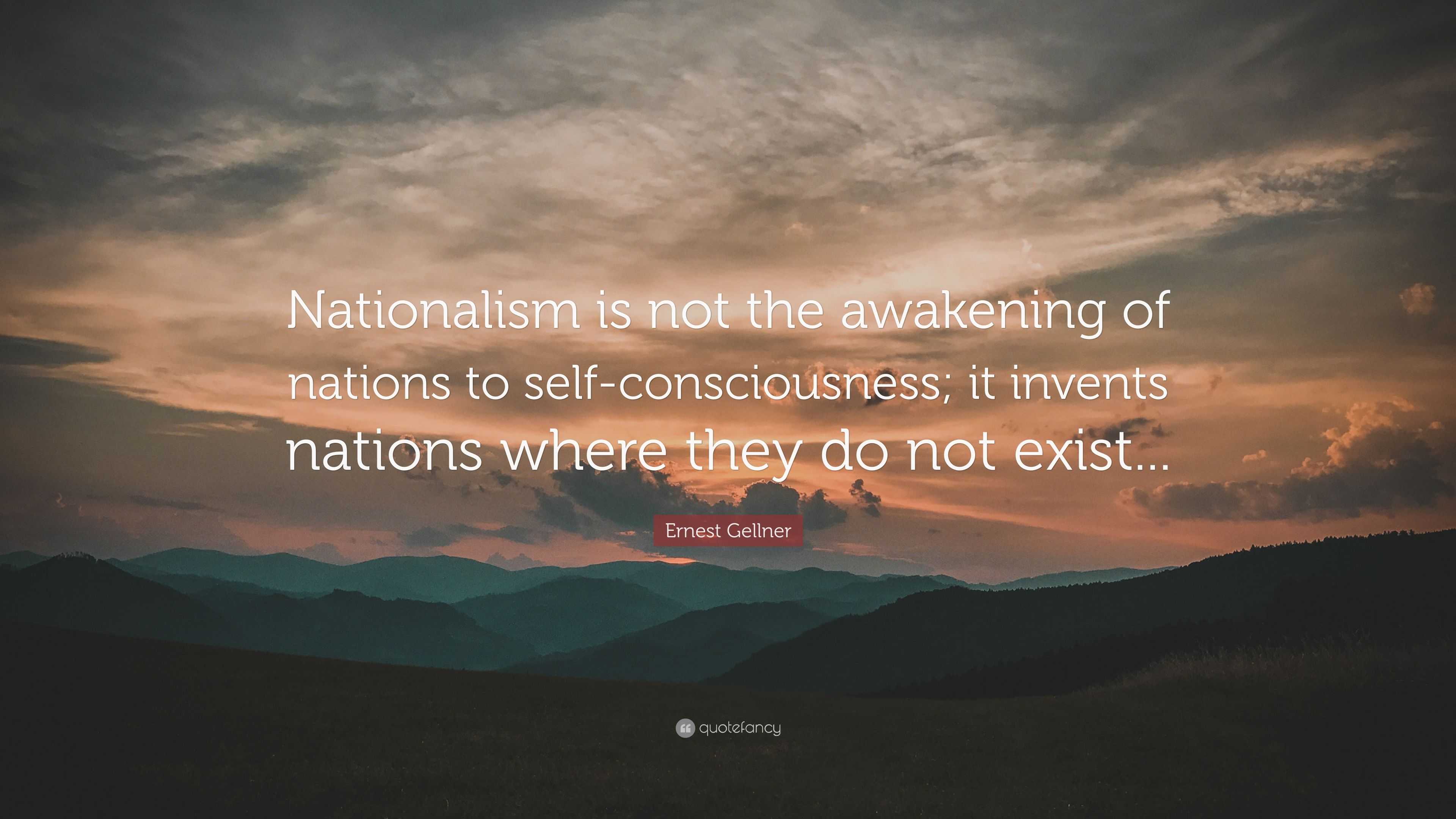


is above all the protector not of a faith, but of a culture and a maintainer of the inescapably homogeneous and standardising educational system, which alone can turn out the kind of personnel capable of switching from one jiob to another within a growing economy and a mobile society, and indeed of performing jobs which involve manipulating meanings and people rather than things. ( Nations and Nationalism, p.20 quoted in Marjorie Howes, Yeatss Nations: Gender, Class, and Irishness, Cambridge UP 1996, p.7.) into the revolutionary nation anything like the latter nationalist programme of establishing nation-states for bodies defined in terms of the criteria so hotly debated by the nineteenth-century theorists, such as ethnicity, common language, religion, territory and common historical memories. Its myths invert reality: it claims to defend folk culture while in fact it is forging a high culture it claims to protect an old folk society while in fact helping to build up an anonymous mass society It preaches and defends cultural diversity, when in fact it imposes homogeneity both inside and, to a lesser extent, between political units. (Ibid., 124-25.)

National ideology suffers from pervasive false consciousness. It is nationalism which engenders nations and not the other way around. (Ibid., p.55.) Nationalism is a theory of political legitimacy, which requires that ethnic boundaries should not cut across political ones, and, in particular, that ethnic boundaries with a given state should not separate the power-holders from the rest. (Ibid., p.1 Clarke & Jones, op. Clarke & Charles Jones, eds., The Rights of Nations: Nations and Nationalism in a Changing World, Cork UP 1999, Introduction, p.7.) It is in reality the consequence of a new model of social organisation, based on deeply internalised education-dependent high cultures, each protected by its own state. (p.48 quoted in Desmond M. ∛ut nationalism is not the awakening of an old, latent, dormant force, though that is how it does indeed present itself. 1993, pp.3-4 - In ∼lassroom / Postcolonial Fiction, infra. See also Ernest Gellner, The Mightier Pen: The Double Standards of Inside-Out Colonialism, in Times Literary Supplement, 19 Feb.


 0 kommentar(er)
0 kommentar(er)
